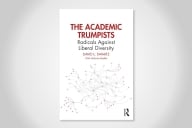You have /5 articles left.
Sign up for a free account or log in.
I’m sending fewer emails. Oddly, I’m not writing fewer emails. Rather, my Outlook Drafts folder is filled with emails unsent.
Are you doing the same thing?
I’ve started to think of email as an anti-communications tool. A platform to kill rather than nurture connections.
The reason that I write so many emails is that writing is how I think. Until I write out my ideas I don’t know what those ideas might be.
The problem is that many of my ideas are bad. Anyone who has ever worked in an organization knows how crazy the saying is that “there are no bad ideas”.
A major realization that I came to was that much of my email writing was for my benefit, rather than for the benefit of the recipient. Any email that is trying to advance your own agenda is probably an email that shouldn’t be sent.
So I’ve given up trying to stop myself from writing long emails, while at the same time realized that these long emails do not need to be delivered. It can be difficult to refrain from sharing an email that you’ve spent time on. Everyone is enamored by their own ideas. An unsent email can feel like a waste of time.
What I’ve realized, however, is that email can work against your goals. If your goal is to persuade, build coalitions, and create relationships - really the modern work of leadership - than email will often be counterproductive to your goals.
The problem is that email is not conversation.
Long emails are like engaging in an interaction where you do all the talking.
Yes, there is a place for the long email, but that occasion should be rare. A long email from someone who seldom writes long emails is one that I will print out, read carefully, and respond. A long email from someone who always sends long emails will feel like a burden.
It is far better, if possible, to replace email with actual conversation. There are no shortcuts to building the sorts of relationships that will enable our work to create a big impact on our campuses. Conversations need to be frequent, open ended, and persistent. Most of one’s time should be spent trying to help colleagues reach their goals.
Listening is the key skill of leadership. Sending email feels like the opposite of listening.
Are you also trying to send less email?








